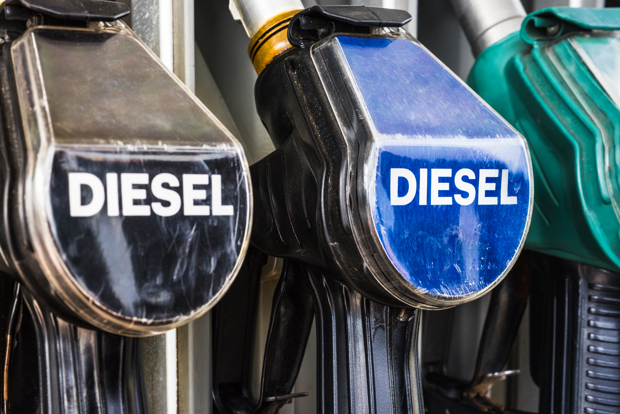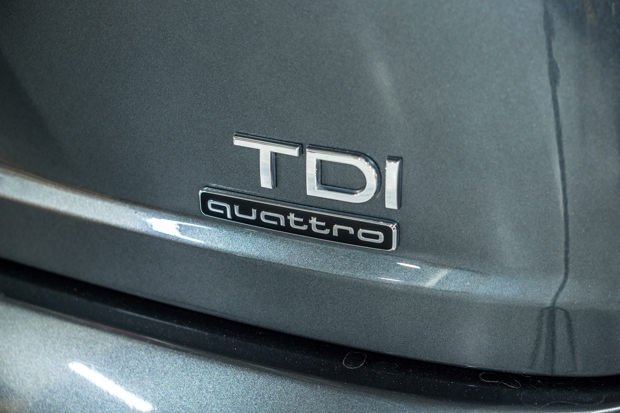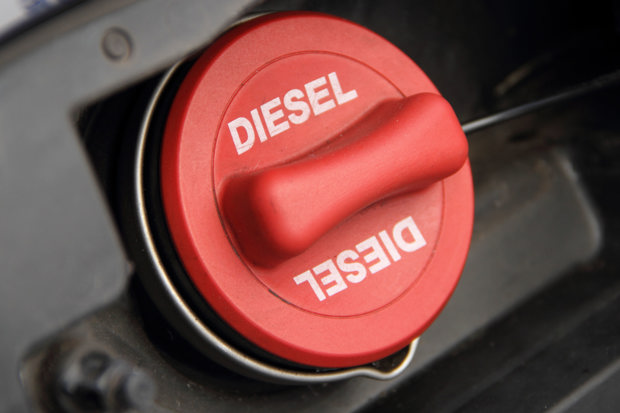Should you buy a diesel car in 2025?
Diesels remain the best choice for some drivers but are they wise buys given recent bad press and the 2030 ban on sales of new models? Here's what you need to know.

- Is it still worth buying a diesel car?
- Why diesel cars are less popular now
- How diesels are affected by the future sales ban
Barely a decade ago, diesel was the fuel of choice for most company car drivers and many private car buyers. Efficient, powerful and ever-more refined, cars that sipped from the black pump were popular new and used choices, usually holding onti their value far better than petrol-powered alternatives.
Diesels also used to enjoy lower VED road tax than petrol cars but they’ve been pushed out of fashion by a succession of duty increases, parking surcharges and city centre low-emission zones that penalise older, more-polluting models.
That bad press caused by older cars' high levels of harmful exhaust particulates, much-publicised legal cases against manufacturers of pre-AdBlue models and the upcoming ban on the sale of new diesel — and petrol — cars hasn't so much dented demand, it's crushed it.
So, are diesels being rightly shunned or can they still make for a savvy buy for some motorists? Read on to find out.
Why are diesel cars less popular now?
Despite diesel cars’ ability to consume less fuel than their petrol-engined equivalents, generally emitting less CO2 in the process, significant factors have counted against them.
Not only has diesel as a fuel become significantly more expensive than petrol, revelations surrounding other harmful emissions led to a sudden and dramatic fall from grace. Then came the Dieselgate scandal of 2015, where it transpired that quoted emissions levels weren’t always as they appeared.
Additionally, the cost to manufacturers of homologating diesel engines to meet ever-stricter emissions standards makes them unprofitable at the less-expensive end of the car market, causing many brands to stop selling their smaller diesel models.
Following the election of the Labour government in July 2024, one of the prime minister's earliest announcements was to reverse his predecessor's deicison to delay the ban on the sale of new diesel- and petrol-engined cars, bringing it back to 2030 instead of 2035.
However, diesel cars can still be the best option for some drivers — especially for private car buyers who cover high annual mileages — providing savings made via fuel efficiency aren't outweighed by VED taxation and other running costs.
Should I consider buying a diesel car?
Firstly, consider your annual mileage. Diesel cars still remain cheaper to run than petrol cars for most people who cover over 15,000 miles a year, thanks to excellent fuel economy.
Diesel engines also have a lot more torque than their petrol equivalents and their pulling power is ideal for towing, making it the better choice for many larger SUVs and pick-ups.
Modern diesels meeting Euro6 emission limits are exempt from London’s Ultra Low Emissions Zone (ULEZ), and other clean air zones, so if you are in the market for a bigger vehicle, a diesel engine could still the best way to go.
Furthermore, even when sales of new petrol and diesel car sales are banned from 2030, hybrid models will still be sold for a further give years and there are no plans to withdraw fossil fuels of any kind from the forecourts.
Should I buy an older diesel car?
Historically, older diesel cars made sense second-hand as they were cheap to run and easy to maintain, but this is no longer the case.
Most pre-2015 diesels don’t comply with ULEZ or clean air zones and those from the late 2000s onwards are much more complex than the earlier models, potentially making parts and servicing unviable financially.
Not all diesel cars fall foul of low emission zones, though, and you can reduce the risk of being hit with present and proposed inner-city charges by buying a newer diesel car that complies with the current emissions regulations, called Euro6.
Every car registered since September 2015 is required to meet this standard.
If you rarely venture into city centres where such charges are levied and have a requirement for a car that economically plies the roads at motorway speeds, then a Euro5 or earlier diesel could be ideal, especially as their values have dropped further since ULEZ's introduction.
Nevertheless, it's best to be mindful that while charging drivers for entering city centres in older, more polluting vehicles isn't widespread right now, it could become so in the future, as could switching VED car tax rates from a system based on CO2 emissions to one using Euro emissions standards.

Will diesel cars continue to depreciate strongly?
Since the late 2010s when diesel car values started to fall more steeply than their petrol-engined equivalents, the trend has largely continued unabated. The lingering stench of Dieselgate and the fact that only post-2015 examples are Euro6-compliant really hampers used values.
As the ban on the sale of non-hyrbid petrol and diesels has been brought forward to its original 2030 date, this decline could well continue as many motorists still seem to be under the misapprehension that it's the sale of the fuel that will be banned, which is far from the case.
Larger vehicles will generally hold their value better in diesel form, as petrol versions can be expensive to run, but even here the growing array of plug-in hybrid and fully electric models could still cause grief for diesel alterntives' worth.
What may positively influence the value of used diesel cars in coming years is the reduction of choice: as new buyers are shunning diesel in greater numbers and many manufacturers have narrowed down the models they sell anyway, demand from used buyers could soon start outstripping supply, causing prices on the second-hand market to rise.
When will diesel cars be banned?
Although we've mentioned it a couple of times already, let's be clear about what is and isn't happening.
Firstly, there are no current plans to ban diesel cars' access to cities or anywhere else in the UK. However, this situation may change in the future.
Owning and driving a diesel car registered before the end of the 2020s will remain legal, as will buying and selling them.
Similarly, the sale of diesel fuel will continue well beyond the middle of the century — there are millions of diesel vehicles on UK roads so a mass scrapping of them will cause a bigger environmental issue than the emissions from newer, cleaner models anyway.
What will be banned is the sale of brand new petrol- and diesel-engined cars with no hybrid assistance. When Boris Johnson was prime minister this was set for introduction in 2030, with Rishi Sunak announcing a delay until 2035 in September 2023. When he was replaced by Sir Kier Starmer in July 2024, the ban reverted to its 2030 date.
Hybrid cars, with petrol or diesel engines, will remain on sale until 2035, but it's worth remembering that many manufacturers have already commited to only producing fully electric cars before 2030 anyway, so it's possible these laws will essentially prohibit the sale of models few companies produce.

I’m a low mileage driver — should I buy a diesel car?
No, this is not a good idea unless you need a large diesel for towing something like a horse box or heavy caravan.
While there's no hard and fast guide, generally speaking for those who don't tow regularly, who mainly drive in urban areas or where their annual mileage is below 15,000, petrols, hybrids and fully electric cars are likely to be a better choice than a diesel.
Diesel cars traditionally had higher prices than petrol equiavelents — this remains true for new cars, if rarely for used ones — but aren't designed for shorter, stop-start driving on a frequent basis, as this can cause their particulate filters to become blocked, requiring expensive remedial action.
I’m a high-mileage driver — should I buy a diesel?
Yes, it should certainly be an option. Diesel still makes a lot of sense for long-distance, private motorists who travel more than 15,000 miles a year, where the additional cost of the car itself and the dearer fuel will likely be outweighed by the savings you make from its fuel economy. The larger the car, the more likely this will be.
Theoretically, for company car drivers who also cover high annual mileages, diesels will be a cheaper option in terms of running costs, but as Benefit-in-Kind (BIK) taxation is skewed towards favouring PHEVs and full EVs, for the employees paying the tax a diesel doesn't make munch sense.
Buy a newer diesel car that meets the Euro6 emissions regulations and you shouldn’t even be penalised for entering cities for many years to come, while on the open road, real world emissions are often quite low.
In economy terms, diesel engines are usually more efficient than petrols. In heavy cars, that difference adds up to greater savings as the extra pulling power of diesel means that they don’t need to work as hard. It’s not uncommon for an SUV with a diesel engine to offer twice the fuel economy of the petrol equivalent, for example.
Should I buy a diesel car for towing?
The vast majority of drivers who tow regularly still favour diesel — and for a good reason.
Just as diesel engines are more efficient in heavy vehicles, they are also the better choice for towing compared with a petrol alternative. Their substantial torque makes them far more effective at dragging a heavy caravan or trailer away from a standstill, or up a hill.
That said, electric motors are torquier still and smoother in how they deliver it. While most manufacturers have concentrated on showcasing the environmental and running cost benefits of hybrids and EVs so far, expect the next few years the towing benefits of them to be marketed with greater focus.
In all cases, the main rule is to think carefully about what you need before choosing which car to buy. There are still many valid reasons why you should buy a diesel car if it’s the right thing for you.
